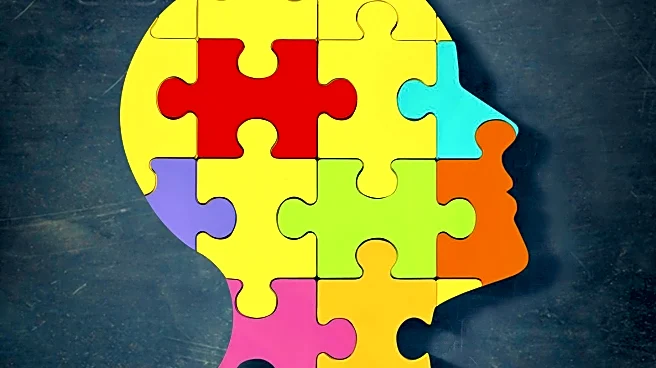What's Happening?
Recent reports indicate a significant increase in autism diagnoses among women, particularly in the UK. This trend is attributed to the evolving understanding of autism, which historically focused on male presentations. Women like Molly Siobhan Parker, diagnosed at 22, are part of a growing demographic seeking support. The National Autistic Society notes that diagnostic criteria have traditionally been male-centric, leading to many women being undiagnosed or misdiagnosed. This has resulted in a surge of late diagnoses as awareness grows. The Welsh government is working to reduce waiting times for neurodivergence services, aiming to provide earlier support for children to alleviate future adult assessment pressures.
Why It's Important?
The increase in autism diagnoses among women underscores the need for more inclusive diagnostic criteria and support systems. Historically, many women have been overlooked due to gender-biased diagnostic models, leading to mental health challenges and delayed support. This shift in understanding could lead to better mental health outcomes and support for women who have been undiagnosed or misdiagnosed. The broader societal impact includes a push for more comprehensive healthcare policies and increased funding for neurodivergence services, which could improve quality of life for many individuals.
What's Next?
Efforts are underway to address the diagnostic gap, with initiatives to refine diagnostic criteria and improve support services. The Welsh government is investing in children's services to provide earlier assessments, potentially reducing adult waiting times. As awareness continues to grow, there may be increased advocacy for policy changes and funding to support neurodivergent individuals. Community initiatives, like those started by Helen Harman, offer peer support and could become more widespread, providing essential networks for newly diagnosed individuals.
Beyond the Headlines
The rise in autism diagnoses among women highlights broader societal issues, such as the need for gender-sensitive healthcare approaches. It also raises questions about the portrayal of autism in media and culture, which often perpetuates stereotypes. This development could lead to a cultural shift in how autism is understood and represented, promoting a more nuanced and inclusive view. Additionally, it emphasizes the importance of mental health support and the role of community in fostering acceptance and understanding.











